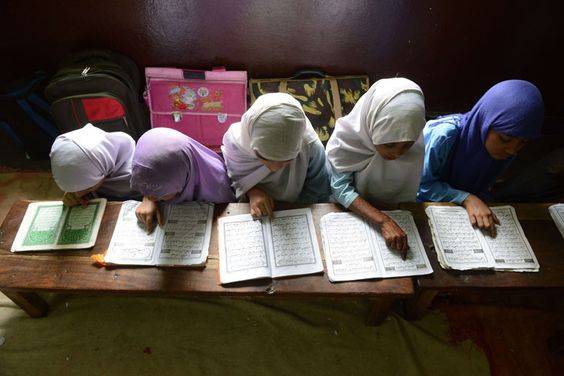Article
Article
Religion In Schools

The Federal Government’s attempt to teach the Quran with translation at schools might not be as successful as planned because of the unexpected concerns raised by the Council of Islamic Ideology (CII).
Pakistan’s experimentation with religion and education has only harmed this country in the past.
The problems that manifest are legion.
Clerics within the ever-present-but-never-needed Council of Islamic Ideology (CII) have voiced their concerns, stating that this will not be beneficial because it will not make the students learned enough to dispute what ‘scholars’ say.
It is becoming increasingly clear that the members of CII are not as knowledgeable as they presume to be, and their attempts to maintain their monopoly over religion is laughably see through.
The fact that CII is disputing this almost makes this a worthwhile endeavour, but it is important to look at this through an impartial lens, one that understands the importance of letting students separate religious education from temporal.
This has more to do with the treatment meted out to non-Muslims students rather than their Muslim counterparts.
Bear in mind that students already have to list their faith when seeking admission, and schools already have Islamiyat as a subject for their students, which in some cases, even non-Muslim students have to study as well.
What this does however, is add yet another aspect of exclusion for non-Muslim students, reminding all the others that there is an inherent difference.
A country that claims to protect the rights of minorities but does not have provisions to put the study of all religious texts in place for people of different religious beliefs is not protecting much at all.
The Federal Government has a responsibility to look after all its citizens, and not just those that share the same faith.
Comments {{ vm.totalComments}}
No comments found, add one now.
{{comment.CommentText}}
{{comment.Name}}, {{comment.DateInserted | date: 'dd/MMM/yyyy hh:mm:ss'}}
Post a comment